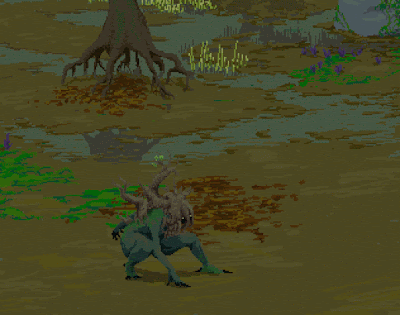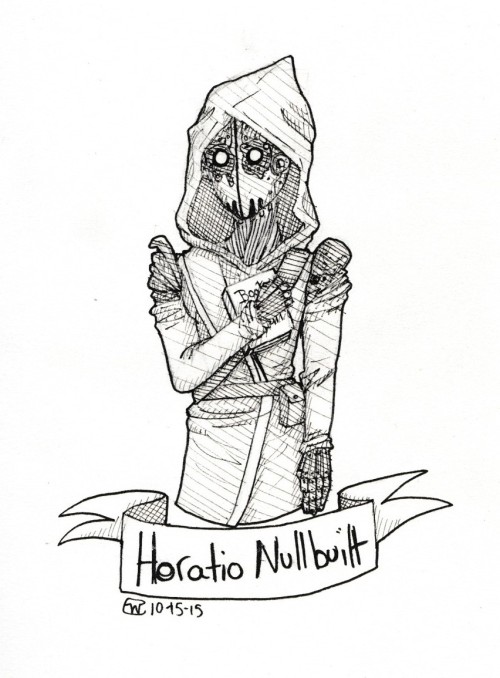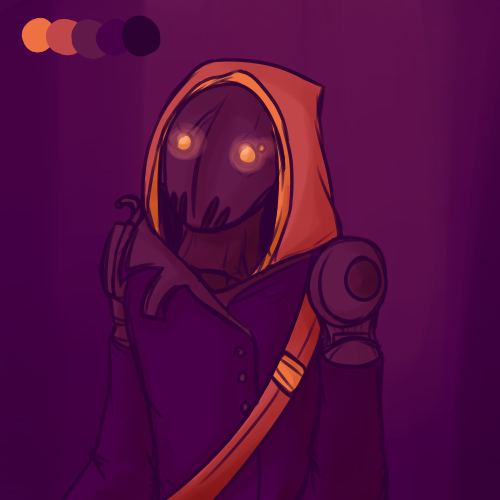When I was 19, I was unexpectedly hired to write the story to a GameBoy Color RPG, entitled Infinity. This was my first paid work as a writer, and actually my biggest paycheck for many years. More importantly than that, though, writing a jRPG story was something I had dreamed of — and attempted — for many years. As a little kid, I’d played Dragon Warrior with my older brother (the last RPG he ever played, the first of many for me), and after playing Shining in the Darkness, I became committed to the idea of making one myself.
I attempted to make an RPG in many different programming languages (BASIC on an Apple II/c, BASIC on a Macintosh IIsi, LogoWriter on that same Macintosh, QuickBASIC on a PC, and TurboPascal on a PC) and then a series of kinds of game-making software (ZZT, MegaZeux, Unlimited Adventures, Verge, and RPG Maker 95). This doomed endeavor — and in a sense, it really was a single endeavor — was probably most fueled by Final Fantasy II, a game I played at a friend’s house and dreamed of mimicking. It consumed most of my creative energy and much of my free time from about 1992 until 1999. Over the years, I collaborated with many people on the Internet, and dragged them into the black hole of wasted time.
One of those collaborators was Eric Haché, the indisputable king of jRPG-style music in that era. I solemnly believed that if I could get Eric on the project — a game called Shadow Incarnate — we couldn’t fail.
Well, we failed.
After that, I became decided to stop importuning other people and wasting their time, and set out in RPG Maker to create a throwback homage to Final Fantasy II, a game called Redemption. About three months into making it, I got an email from Eric out of the blue: he was doing the music for a GameBoy RPG, but the writer had flaked. Would I be interested in working on it?
The day I saw Infinity running on a real life, actual GameBoy, I nearly swooned.
That the game should be a technical marvel is no surprise because its coders, Justin Karneges and Hideaki Omuro, were basically superhuman savant programmers. Justin, for example, had managed to make a full-featured RPG (Joltima) on the TI-83 graphing calculator, something that in a sense vindicated my Quixotic effort to make a jRPG in, e.g., LogoWriter.
Getting to work on Infinity was beyond the biggest dream I’d had — namely, to mimic a console RPG, but not actually to make one. The problem was, there was a tiny window of time to write the story, so I dusted off Redemption, and got writing: 25,000 words in three days.
Nineteen at the time, I imagined myself to be writing a mature homage to the games I grew up on. With the distance of 17 more years, I realize how mistaken I was — it is a decidedly adolescent appropriation of those games. The story begins with a flashback to a heroes many generations ago and their tragic conclusion (just like Lufia and the Fortress of Doom), before turning to a fallen knight who has more than a little Cecil from FFII in him visiting a castle that is plainly Tintagel from Dragon Warrior. There he meets a king who is equal parts taken from the the king of Baron in FFII and the king in Faxanadu, before encountering a villain who is plainly Kefka from Final Fantasy III and having a send-off that is plainly the bridge scene from FFII. He sets off through a series of environmental dungeons facing environmental enemies strikingly reminiscent of Secret of Mana, while visiting a desert town straight from The Magic of Scheherezade and then a post-apocalyptic (not in the modern sense) refugee town that is just like the future city in Chrono Trigger (right down to an elder who riffs off the “Heal-thy” line). Along the way, all the characters spout emphatic one-liners that are somewhere between Destiny of an Emperor and River City Ransom. All of this adventuring takes place against a backdrop of a resurgent supernatural evil that is mostly Dark Force from Phantasy Star with a dash of Lavos from Chrono Trigger.
Anyway, this game got very, very close to completion, but a series of insane and insanely frustrating factors conspired to doom it. For example, Squaresoft’s American branch expressed interest in seeing it, but shuttered its offices before the project lead (Justin) could arrive: when he showed up, he found empty office space with a Parasite Eve poster on the wall and a single telephone on the floor. He called the contact number he was given and the phone rang. Later, Crave Entertainment entertained publishing it, but while they mulled it over, the GameBoy Advace was announced and Golden Sun with it, and the technical marvel that was Infinity was now the most advanced Cro-Magnon scratching his beard at a newfangled Neanderthal.
So it goes. The project faded away. We all went onto other things. Years passed. More years passed. All the while, the game’s sound engineer, Matthew Valente, kept the spark alive by teasing tidbits about Infinity on YouTube and elsewhere.
Finally, in 2016 — a good 17 years after the project began and 15 years after it stopped — Justin and Hideaki dusted off the code, and persuaded the game’s visionary financier Matt Rossi to let a build and the code be publicly released.
So here it is. A time capsule. A living Cro-Magnon. A homage, pastiche, bricolage, fiasco of a story. Go grab it here.























